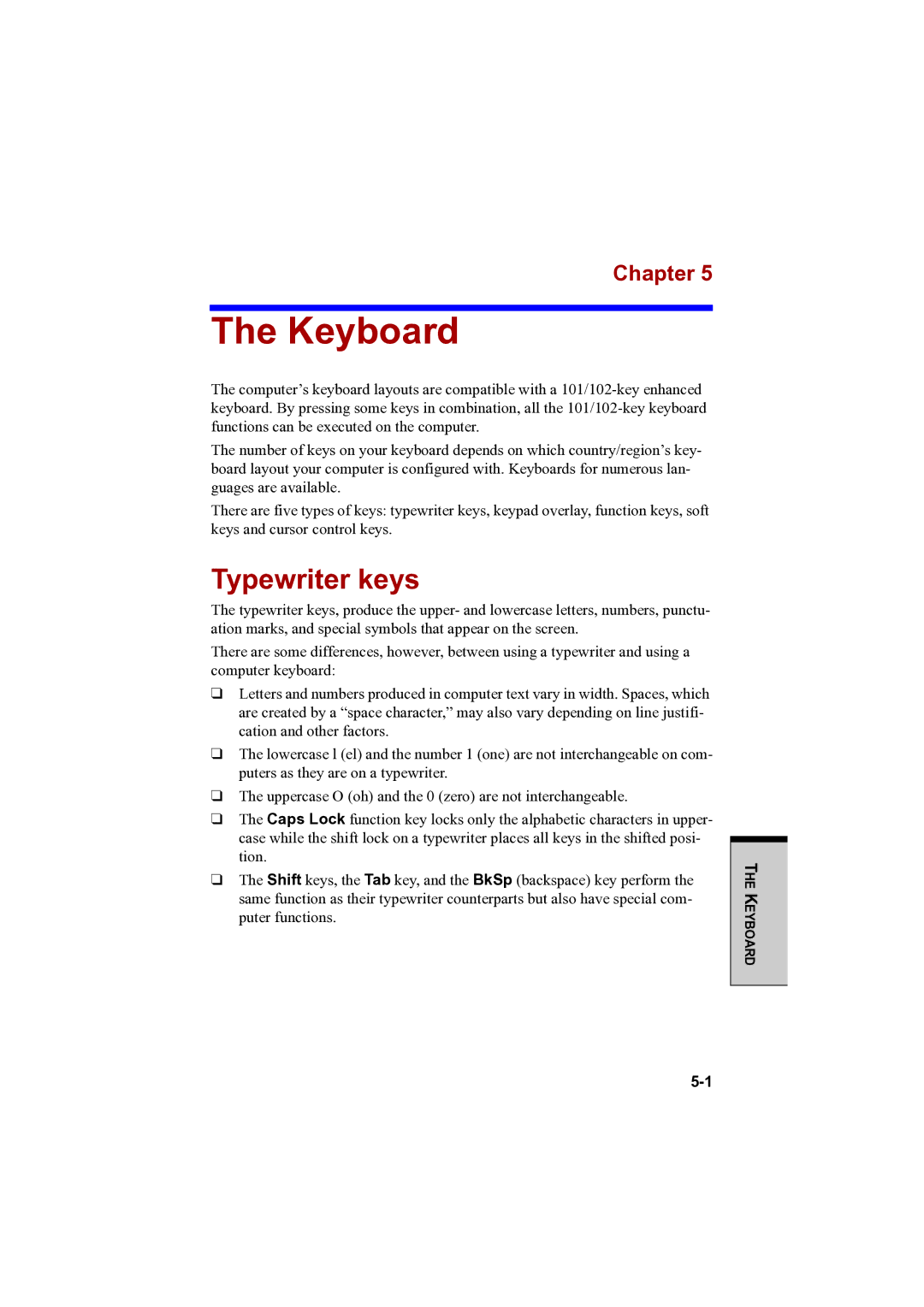
Chapter 5
The Keyboard
The computer’s keyboard layouts are compatible with a
The number of keys on your keyboard depends on which country/region’s key- board layout your computer is configured with. Keyboards for numerous lan- guages are available.
There are five types of keys: typewriter keys, keypad overlay, function keys, soft keys and cursor control keys.
Typewriter keys
The typewriter keys, produce the upper- and lowercase letters, numbers, punctu- ation marks, and special symbols that appear on the screen.
There are some differences, however, between using a typewriter and using a computer keyboard:
❑Letters and numbers produced in computer text vary in width. Spaces, which are created by a “space character,” may also vary depending on line justifi- cation and other factors.
❑The lowercase l (el) and the number 1 (one) are not interchangeable on com- puters as they are on a typewriter.
❑The uppercase O (oh) and the 0 (zero) are not interchangeable.
❑The Caps Lock function key locks only the alphabetic characters in upper- case while the shift lock on a typewriter places all keys in the shifted posi- tion.
❑The Shift keys, the Tab key, and the BkSp (backspace) key perform the same function as their typewriter counterparts but also have special com- puter functions.
THE KEYBOARD
